Alcaraz’s ankle scare at Japan Open turns into straight‑set win
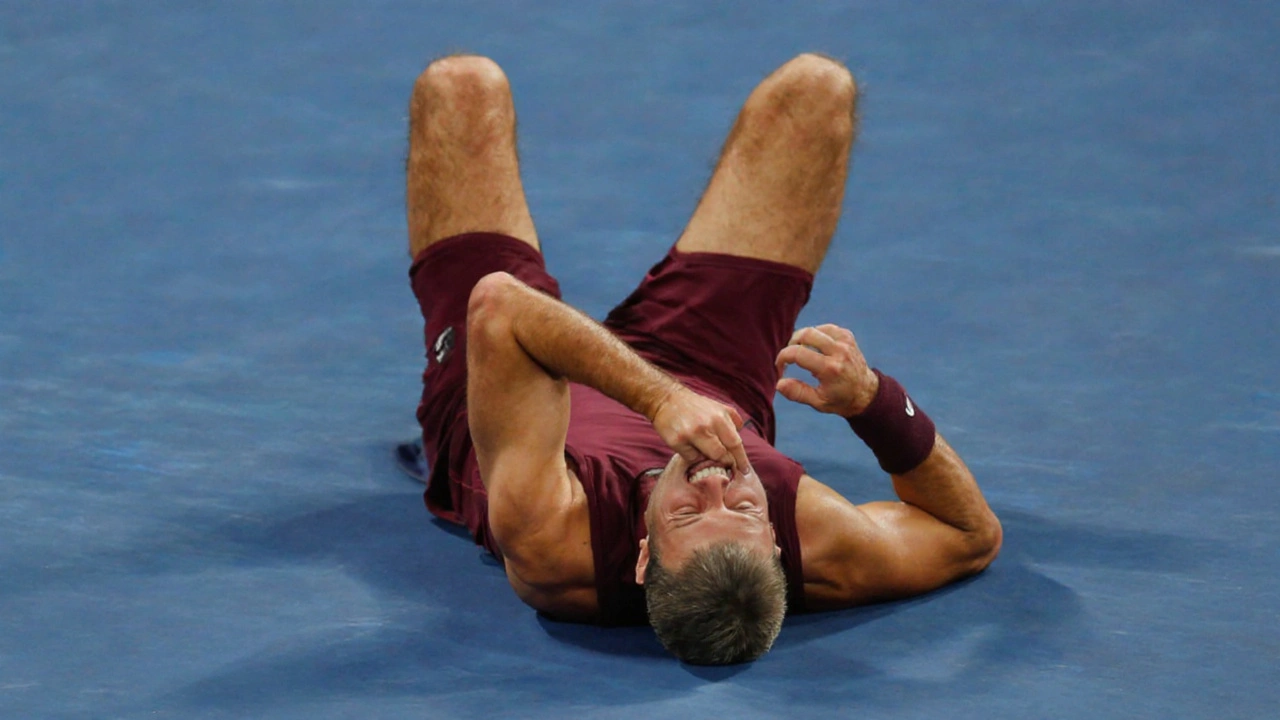
First‑round drama at the Ariake Coliseum
When 22‑year‑old Carlos Alcaraz stepped onto the hard courts of Tokyo on September 25, most fans expected a routine start to his 2025 Japan Open campaign. Instead, the world‑number‑one found himself on the ground after a sudden roll of his left ankle just minutes into his match with Argentina’s Sebastian Baez, ranked 41st.
Alcaraz’s fall was anything but graceful. He dropped hard, clutching his face and then gripping his ankle, a grimace flashing across his features. The crowd fell silent as medical staff rushed onto the court, the sound of the stretcher wheels echoing through the Ariake Coliseum.
Doctors wrapped his ankle tightly, the strap looking almost like a tiny bandage of steel. The sight sparked immediate speculation: could the young champion even finish the match? Alcaraz, usually composed, could barely conceal his concern, rubbing his eyes and testing the pain with cautious movements.
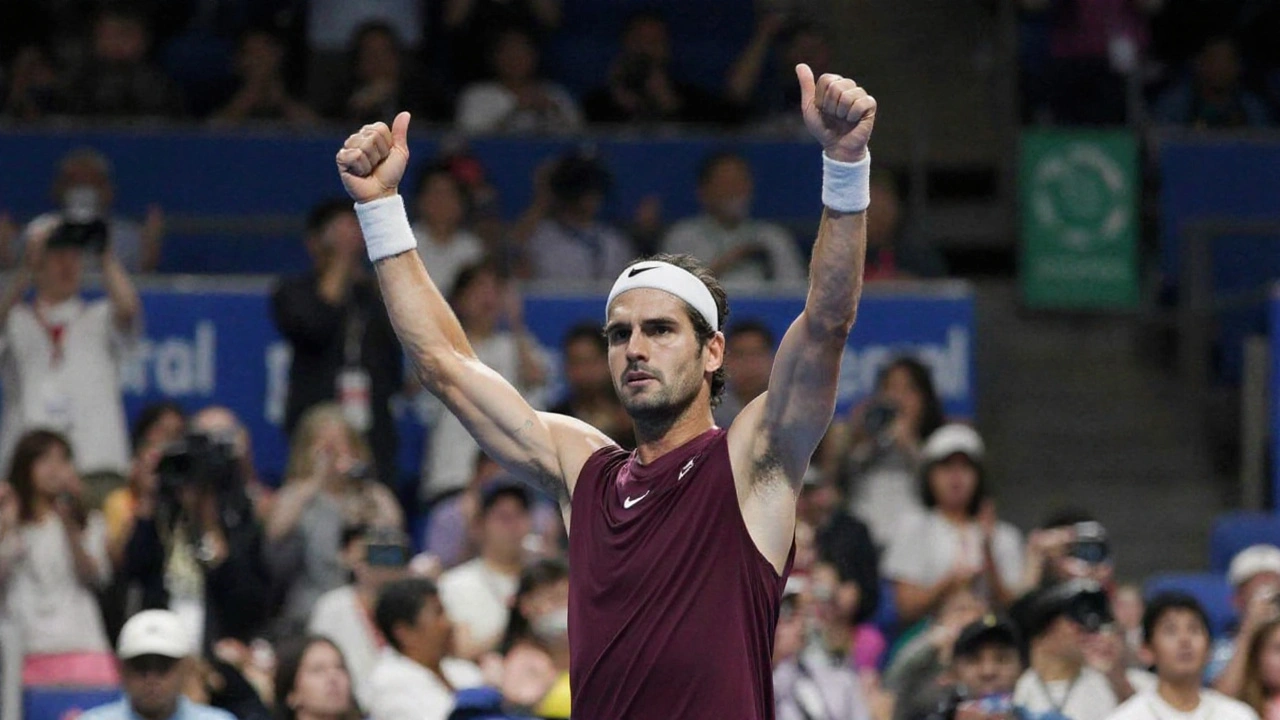
Resilience turns panic into triumph
After the timeout, the Spaniard returned to the baseline, his steps tentative at first but gaining confidence with each rally. Baez tried to capitalize on the wobble, pushing deep into the court, yet Alcaraz’s baseline game—crushing forehands and precise placement—started to dominate.
By the second set, the strain on his ankle seemed less obvious. Alcaraz’s footwork grew smoother, and his signature speed resurfaced. The match, which had the potential to end in a medical forfeit, unfolded into a convincing 6‑4, 6‑2 victory completed in just 81 minutes.
In the post‑match interview, Alcaraz didn’t hide his nerves. “I was scared. I’m not gonna lie. I felt my ankle and didn’t feel great,” he admitted, his voice still a little hoarse. “In the first five minutes I thought I wouldn’t continue, but I’m happy to be able to play after that.”
Looking ahead, the champion remains cautious. He’s slated to meet Belgium’s rising star Zizou Bergs in the second round, a tie that could test his ankle further. “I will try to be ready for the next match,” Alcaraz said, hinting at a careful approach to training and recovery over the next few days.
Fans left the arena buzzing, not just about the win but about the mental toughness displayed on a day that could have turned dramatically different. Alcaraz’s quick bounce back adds another chapter to his already impressive résumé and sets the stage for an intriguing Japanese showdown.

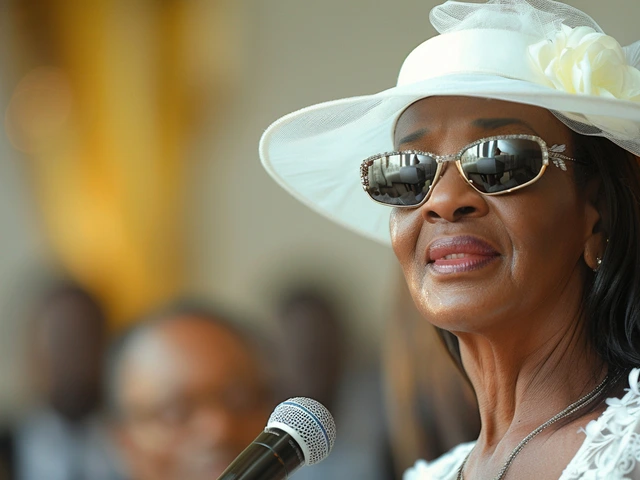

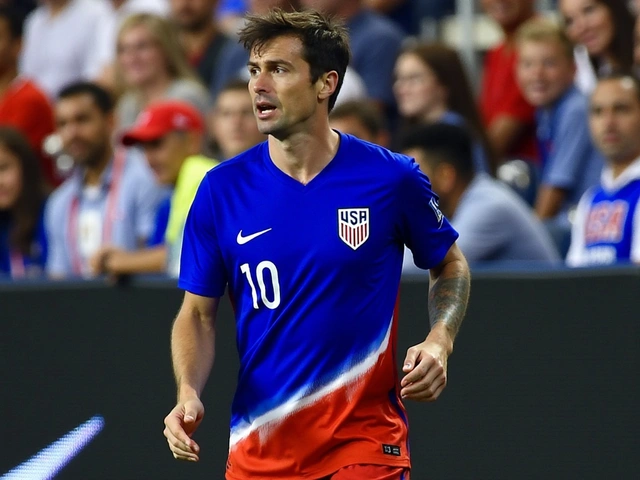
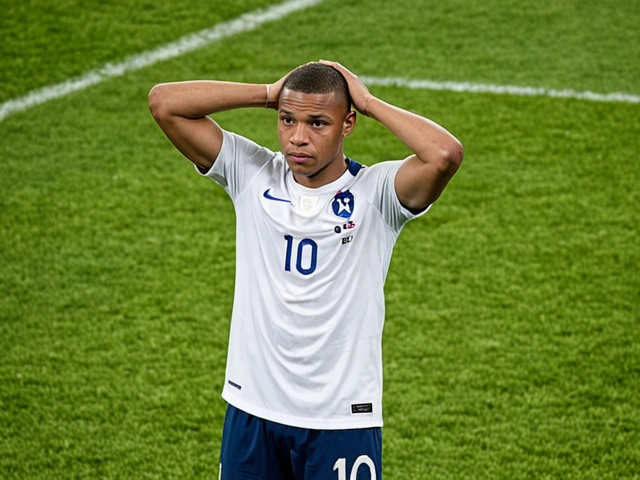

linda menuhin
September 26, 2025 AT 02:27Life is like a tennis match, you fall, you get up, and you still gotta chase that ball.
Jeff Abbott
October 3, 2025 AT 22:27Yo, that ankle drama was a total roller‑coaster, but Alcariz (whoops, I mean Alcaraz) showed the mental grit of a seasoned shark. I mean, imagine the panic, the blood‑pumping adrenaline, and still he decides to grind it out like a workhorse on steroids. That's the kind of tenacity you don't see in the average player, and it's honestly kind of terrifying how quickly the tables can turn.
Quinton Merrill
October 11, 2025 AT 18:27🔥💪 The way he bounced back is a perfect reminder that injuries are just another opponent on the court. 🏆 Let's give the kid some credit for pushing through the fear and delivering a solid win. 🎾
Linda Lawton
October 19, 2025 AT 14:27Honestly, the whole "scare" thing is just a rabbit‑hole of governmental sports conspiracies. They sprinkle a little drama, then pop a story about "courage" to distract us while the real puppeteers gloat. It's all smoke, mirrors, and a hint of crimson on the court.
Ashley Bradley
October 27, 2025 AT 09:27There is a profound symmetry in the way a single moment of vulnerability can become a crucible for personal transformation, particularly within the high‑stakes arena of professional tennis. When Alcaraz stumbled, the physical pain was evident, yet it was the echo of his internal dialogue that resonated most profoundly. He confronted the stark reality of his own fragility, an experience that many athletes shield behind the veneer of invincibility. The audience, bearing witness to this raw exposure, collectively inhaled a breath of empathy, a reminder that even the world‑number‑one is subject to the whims of fate.
From a philosophical perspective, the incident underscores the dialectic between determinism and free will. The ankle injury, a deterministic interruption, could have been the terminus of his tournament journey. Instead, Alcaraz exercised his agency, choosing to persevere despite the looming specter of withdrawal. This act of defiance against the deterministic narrative illustrates the human capacity to rewrite one's own script when confronted with adversity.
The psychological impact of such an event cannot be overstated. In the immediate aftermath, the surge of cortisol and adrenaline would have taxed his cognitive functions, potentially impairing decision‑making. Yet, his subsequent composure suggests a mastery of emotional regulation, a skill cultivated through years of mental conditioning. This regulation enabled him to transform panic into focused energy, channeling his fear into a performance weapon.
Moreover, the tactical adjustments observed during the match reveal a nuanced adaptability. By modifying his footwork and relying more heavily on his forehand precision, he compensated for any lingering instability in his ankle. This strategic pivot not only mitigated risk but also demonstrated a deep awareness of his own physiological limitations, turning a potential weakness into a calculated strength.
From a broader cultural context, the crowd's reaction exemplifies a collective catharsis. Their initial silence transformed into a chorus of admiration, a societal acknowledgment that resilience is a shared value. In a world increasingly obsessed with instant triumph, moments like these serve as a potent reminder that true greatness often emerges from the crucible of hardship.
In summation, Alcaraz's ankle scare, while ostensibly a simple physical mishap, evolved into a multidimensional narrative encompassing philosophical introspection, psychological fortitude, tactical ingenuity, and cultural resonance. It is a testament to the human spirit's capacity to transcend physical limitation, reaffirming that the essence of sport lies not merely in victory, but in the unyielding pursuit of excellence amidst uncertainty.
Joe Delaney
November 4, 2025 AT 05:27good point the match was crazy but 81 minutes is short
Ruben Vilas Boas
November 12, 2025 AT 01:27Yo, I'm with you – 81 minutes feels like a sprint, especially after a scare. Alcaraz showed why he's top dog; keep that focus and he'll crush Bergs next.
UJJAl GORAI
November 19, 2025 AT 21:27Indeed, the narrative of a "comeback" is most amusing when one considers the sheer absurdity of a world‑number‑one tripping on a mere ankle. One might question whether this incident is not a cleverly orchestrated spectacle, designed to inflate viewership while the underlying agenda remains obscured.
Satpal Singh
November 27, 2025 AT 17:27While the speculation is interesting, the match facts speak for themselves: Alcaraz’s win was decisive, and his ankle appeared stable after the initial assessment.
Devendra Pandey
December 5, 2025 AT 13:27The whole "spectacle" angle is overblown; it’s just a tennis match and a minor injury, nothing more.
manoj jadhav
December 13, 2025 AT 09:27Wow!!! This is such an inspirational story!!! The way he pushed through the pain, the crowd's reaction, the whole atmosphere-absolutely electrifying!!!!
saurav kumar
December 21, 2025 AT 05:27Even with the scare, Alcaraz kept it simple: play strong, stay focused.
Ashish Kumar
December 29, 2025 AT 01:27One must marvel at the theatricality of modern tennis: a fleeting injury, a brief lament, and then an almost pre‑ordained victory. It is as if the universe conspires to reassure us that the elite are impervious, despite the glaring evidence of human frailty.